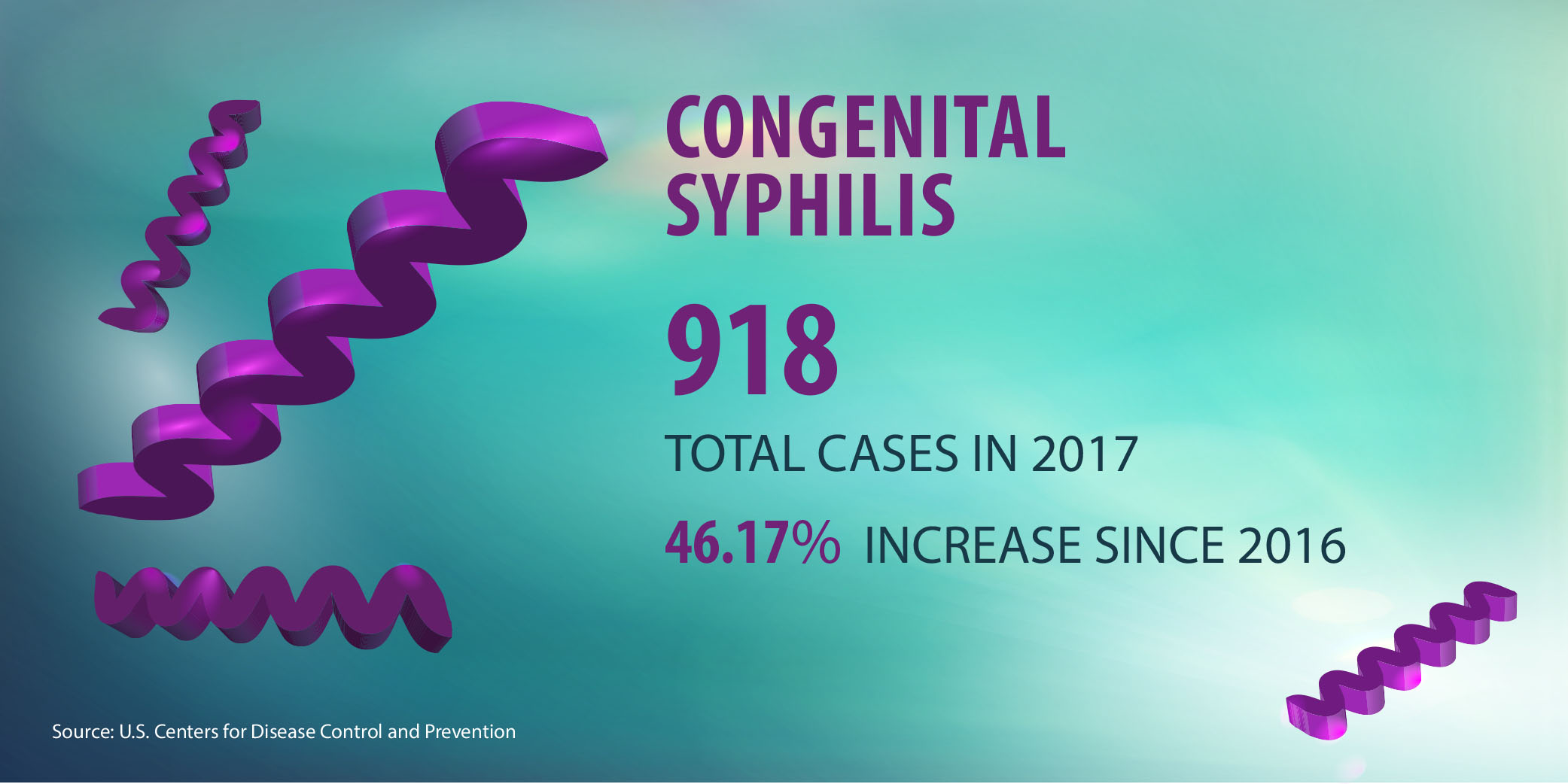-
Featured News
Cases of congenital syphilis have more than doubled
 The number of babies born in the U.S. with syphilis has more than doubled in the last four years, according to the Centers for Disease Control and Prevention (CDC). More than 900 cases of the disease were reported in 2017 – the highest number of recorded cases in the U.S. in 20 years. Congenital syphilis is passed from a mother to her baby during pregnancy or delivery. It greatly increases the risk of miscarriage, stillbirth or a newborn's death within a few days after birth.
The number of babies born in the U.S. with syphilis has more than doubled in the last four years, according to the Centers for Disease Control and Prevention (CDC). More than 900 cases of the disease were reported in 2017 – the highest number of recorded cases in the U.S. in 20 years. Congenital syphilis is passed from a mother to her baby during pregnancy or delivery. It greatly increases the risk of miscarriage, stillbirth or a newborn's death within a few days after birth.
Syphilis is a bacterial infection usually spread by sexual contact. The disease starts as a painless sore — typically on the genitals, rectum or mouth. Syphilis spreads from person to person via skin or mucous membrane contact with these sores. People can be infected with syphilis and not know it.
Babies born to women who have syphilis can become infected through the placenta or during birth. Most newborns with congenital syphilis have no symptoms, although some experience a rash on the palms of their hands and the soles of their feet. Later symptoms may include deafness, teeth deformities and saddle nose — where the bridge of the nose collapses.
If left untreated, there is an 80 percent chance of a mother passing congenital syphilis to her baby. Penicillin is the only recommended antibiotic for treating pregnant women with syphilis.
Syphilis is a bacterial infection usually spread by sexual contact. The disease starts as a painless sore — typically on your genitals, rectum or mouth. Syphilis spreads from person to person via skin or mucous membrane contact with these sores. People can be infected with syphilis and not know it.
Congenital syphilis is one of various stages of syphilis which include:
- Primary syphilis
- Secondary
- Latent
- Tertiary (late) syphilis
The CDC recommends that all pregnant women be tested for syphilis the first time they initially see see a doctor about their pregnancy. For women at high-risk for syphilis, the CDC also recommends testing early in the third trimester and at delivery.







